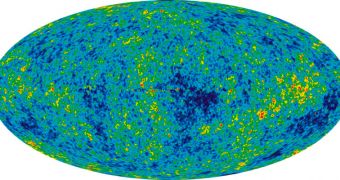According to a new theory proposed by an American researcher, it could be that all physical systems in the Universe, and the Cosmos itself, may be nothing more than quantum mechanical computers.
Examples of physical systems include individual humans, rivers, a forest, an ecosystem and so on. In other words, just about everything is a QM computer, says scientist Seth Lloyd.
The investigator is based at the Massachusetts Institute of Technology (MIT) in Cambridge. He believes that all information (regardless of the form they take) can be quantified using a physical value, similar to how concepts such as mass and motion can be quantified in the same way.
If we hold that to be true, then the idea that the Universe is an enormous quantum mechanical computer is not that exaggerated after all. The scientists has even calculated several key aspects of the Universe, derived from properties of quantum computers.
“A computer made up of all the energy in the entire known Universe (that is, within the visible 'horizon' of forty-two billion light-years) can store about 1092 bits of information and can perform 10105 computations/second,” Lloyd says.
If the Cosmos itself is a quantum computer, then the entire system may have made up to 10122 computations since the Big Bang exploded everything into being. These numbers apply only to the visible Universe, the scientist adds.
The new way to view everything around us might have unexpected applications, such as for example making more sense of what black holes are and how they function, Daily Galaxy reports.
“We might be able to figure out a way to essentially program the black hole by putting in the right collection of matter,” Lloyd says, adding that the dark behemoths could conceivably be used as data storage banks.
This application is only possible if Hawking radiation – proposed by famed physicist Stephen Hawking – are demonstrated to exist. In theory, these radiations carry with them information about the matter tha fell through the event horizon.
This means that all the matter falling inside the black hole becomes entangled with the radiation leaving its vicinity. This type of connection could be used to store data, Lloyd hypothesizes.
The idea of a universal quantum computer is probably a long-shot, but it does represent an interesting new way of looking at everything around us. This way of thinking might just inspire scientists to look at the Cosmos bit differently, and maybe learn something about it in the process.

 14 DAY TRIAL //
14 DAY TRIAL //